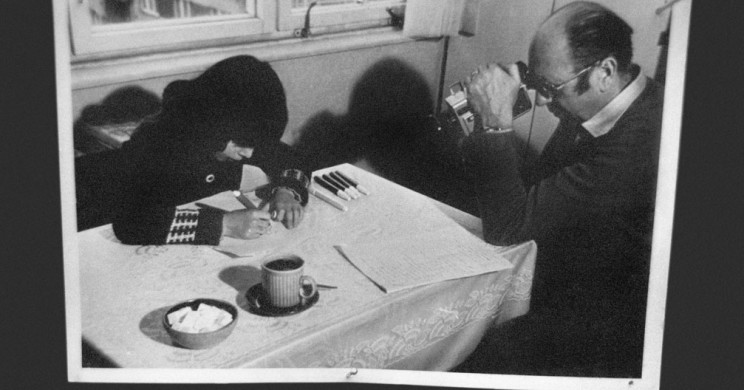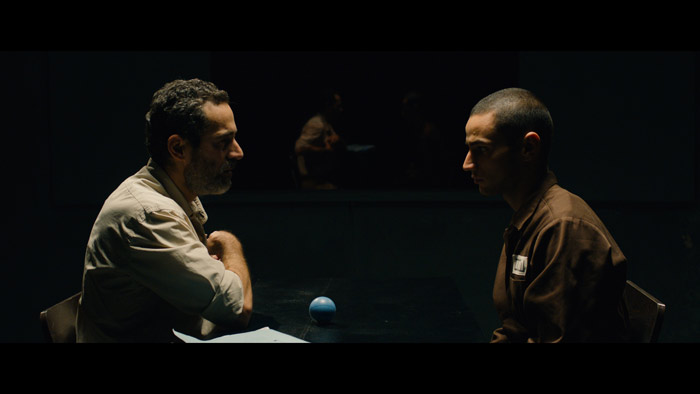The 51st New York Film Festival is more of a milestone than the 50th Anniversary edition. The Festival demonstrates that American filmmaking has fully transformed itself from a plastic form of storytelling in time and motion, into a form of self-indulgent self-centered vanity. This was to have been expected.
Since the mid-1990s, celebrity has been the dominant stylistic trope of the cinema. When agents achieved the status of “power elite” in Hollywood distribution circles, it was the death knell for imagination and creativity. Character-driven cinema revolves around the cult of personality. Actors have projects created to reflect their “face to the public”. Because of this egocentricity, no one ages in American Film.
Plot lines are concocted to display the attributes of the actor. More than in the 1930s, current distribution/production deals mandate marketing that sells “stars” not story.
Plot is subverted by spectacle because spectacle displays the creativity of the plastic surgeon. The conceit of character-driven cinema is that its creators no longer need a message; they simply need a “brand”. This all appeals to the self-centered sentiment of the “Me Generation” who defines life experience via twitter.
Vanity and narcissism dominated this year’s Festival wherein the messenger is far more important than any message.
Nebraska
Displayed exquisitely in black and white, the landscapes of Nebraska and the faces of its people define this work as a beautiful portrait of a somber reality, not everything ages with grace. In Nebraska that reality does not seem to trouble all the common folks that populate Alexander Payne’s pictorial elegy and contemplation on family loyalties, conscience, and “settling up.” Sense of place dominates the story and after a dutiful son painfully entertains his aging and vulnerable dad’s zany compulsion, a certain sadness and dignity emerges that makes you appreciate the simplicity of rural America.
Inside Llewyn Davis
This portrait of the uncompromising artist concocted by the Coen Brothers with a certain air of compassion, nevertheless celebrates the cult of youthful self-indulgence. Structured as a commentary of the struggles an exemplary singer/songwriter trying to establish himself and the new early 1960s musical idiom of folk. As portrayed by Oscar Isaac, Llewyn Davis embarks on a “misbegotten odyssey” toward success. Circumstances, timing, and rhythm are nicely plotted to evoke quiet desperation and it is his presentation that seems to doom him. The character is so into himself, he can’t feel the audience only his own passions and frustrations. Like so many “savants” Llewyn just misses the boat. Pioneers don’t succeed; others harvest the fruit of their labor. I would like to think the Coens are celebrating the single-mindedness and self-destructive tendencies of creativity. We might even feel, after all is lost, that this character embraces and is sustained by the artistic energy he creates in each solitary performance.
Stranger By The Lake
Swollen over as it is with ample amounts of explicit man on man sex, Alain Guiraudie’s ominous tale moves from romance and jealousy to a horror story. Developing entirely in a beachfront “cruising spot”, Stranger tries to document one man’s quest for continual pleasure while understanding his own sexuality and what drives him. A plot could not be more self-centered. Intimacy and trust are the emotional drugs that lead to a scary conclusion one that makes eloquent use, as in most of the film, of ambient sound and the loss of natural light.
La Jalousie
The lead character is a study of narcissistic selfishness. , the persona is an actor, committed more to himself than his wife or the woman with which he has an affair. Blind to the needs of anyone around him, Louis allows himself the privilege of despair when everyone runs out on him. Director Philipppe Garrel paints a picture of poetic justice. Louis is stuck with himself. Directorially, it is a celebration not a cautionary tale. While it avoids elevating self-indulgence to a virtue, this portrait is somewhat forgiving of itself.
Jimmy P. Psychotherapy of a Plains Indian
This film lacks the magic needed to explore its subject: the exploration of the interchange between patient and physician. Director Arnaud Desplechin is too respectful of his source material Reality and Dreams by Georges Devereux, who melded both the theories and practices of psychotherapy and anthropology. This directorial reverence for his countryman (actually an expat Hungarian of Jewish persuasion) does not result in thought provoking characterization or imaginative plot. It is the ego of the director that refuses to indulge his actors, Benecio Del Toro and Mathieu Amalric, who, in the hands of another, may have provided the magical mystery tour this movie was meant to be.
OMAR
Director Hany Abu-Assad bears the soul of Palestine in OMAR, a film that reflects the oppressive relationships between Israelis and Palestinians. The fragility and the necessity of trust drives the plot and all the characterizations and the intricacies of solidarity, as compromise propels a story that is essentially one of lost love. Propagandistic and single-minded, OMAR is, nevertheless, a sensible yet emotional story of painful choices and mutated ideals.
The Dog
The real-life exploits of the man who inspired the film Dog Day Afternoon is raucously devolved in this exquisitely satirical documentary by Allison Berg and Frank Keraudren. A subversive force of natures, John Wojtowicz Vietnam Veteran, self-proclaimed bisexual sex addict and latent stand-up comedian, enacts his own bio as a darkly humorous comedy in which he explains with irreverent passion his iconoclastic lust for life. This is a portrait of an outrageous ego that manages to survive the life of self-imposed hazards. The Dog presents what happens when an individual believes in the virtue of his debauchery.
Le Week-End
Jim Broadbent and Lindsay Duncan portray seniors on Holiday in Paris. Less about growing old than about acting old, this serio-comic episode of the implied long relationship of husband and wife details what happens to dreams deferred and ideals compromised. And as petty foibles are displayed and crotchety habits imposed, we understand that personhood always manifests a deep loyalty to self.
Bastards
A seafarer , Marco (Vincent Linden), inexplicably moves in temporarily into an apartment just vacated and strikes up a relationship with the estranged wife of an affluent businessman and their son. Sexual passion keeps them addicted to each other even though each has a vulnerable loyalty to others. Marco has not done a good job protecting his own estranged daughter from a life of exploitation, but he yearns to set it all right. It feels like an episode of NYPD Special Victims Unit.
Claire Denis cannot avoid finding a way to preserve the importance of French middle class values even when all narrative roads seem to bludgeon the bourgeois sentimentality. Bastards is ultimately more about Denis’ nimble storytelling and resolve to come to a civilized expression of the possibility of justice.
Child of God
Scott Haze acts the feral human. Some movies exist for the actor, are nothing but an excursion into the deepest cauldron of acting magic. In James Franco’s portrait of an underdeveloped hillbilly, plot improbabilities and excesses are the excuses for tour de force acting technique. Child of God is a showcase of performance art yet unlike Captain Phillips, All I Lost, and The Secret Life of Walter Mitty, the film is not a vanity project to allow established talent to flex their craft and ego.
By Tony Zaza

























